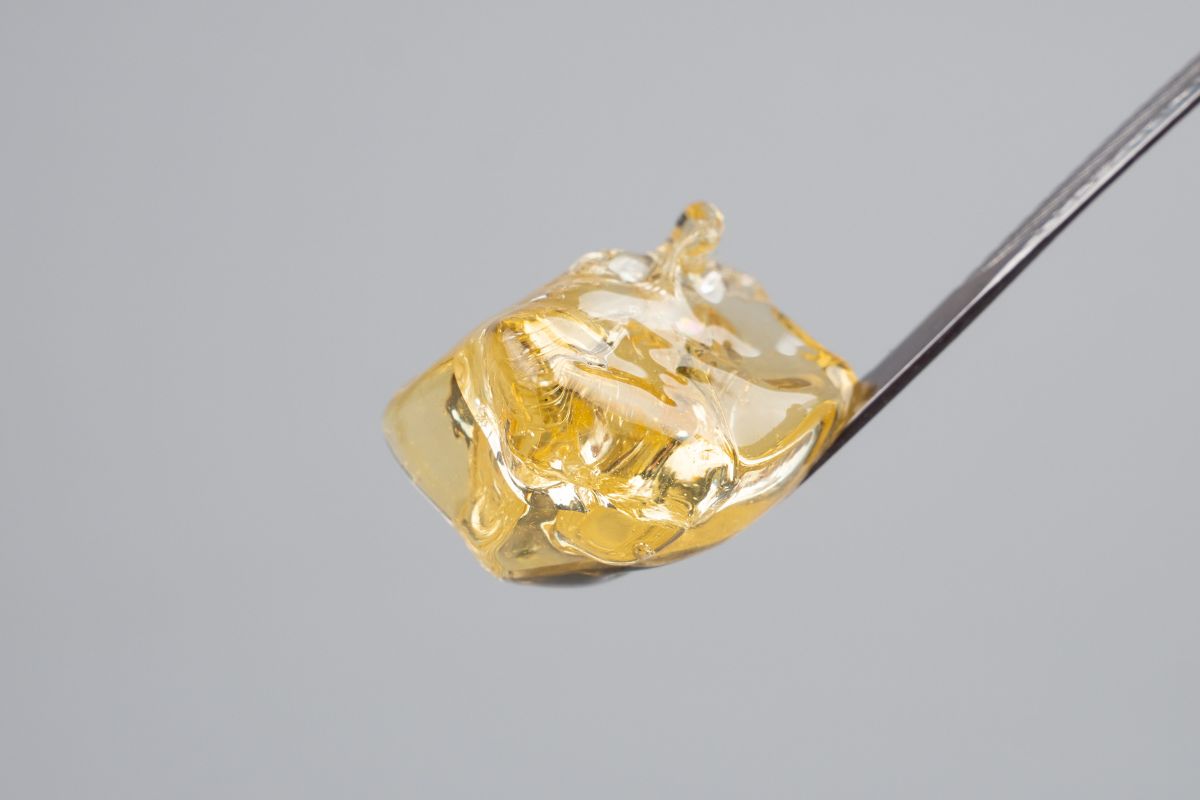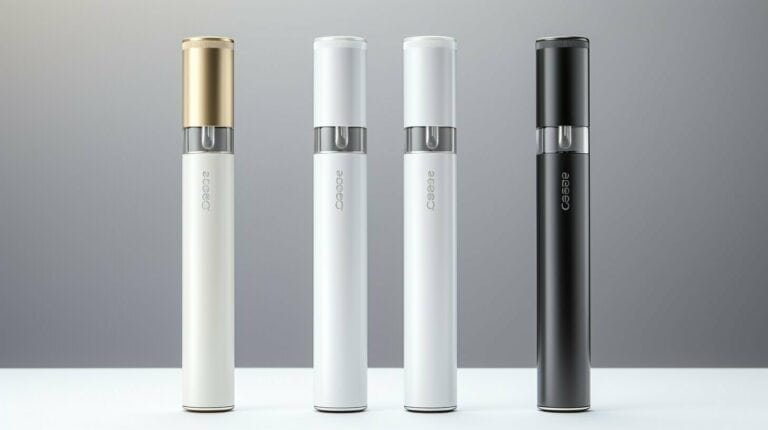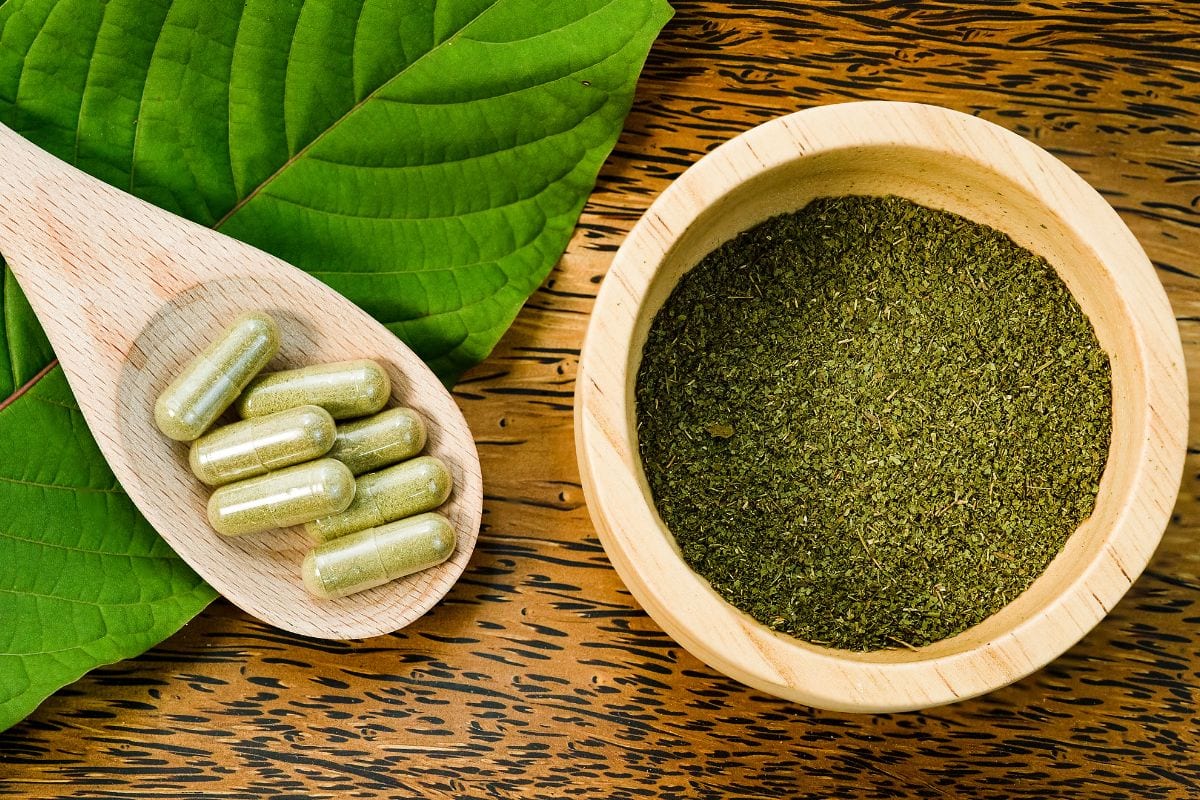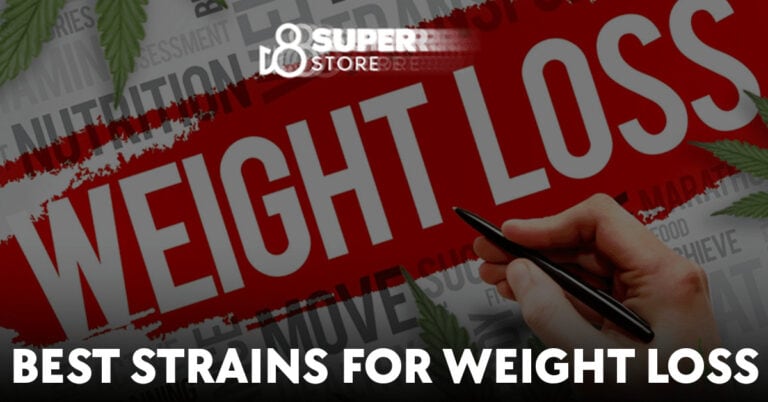Is THCa Safe to Smoke? – Unveiling the Facts and Health Considerations
Jump into the fresh and surprising world of **THCa**, a hidden treasure hiding in raw cannabis leaves. Think of it like the quiet cousin to THC, providing calm without the head-spin. Yet, spark it, and whoosh! **THCa** changes into THC, the star of the show. This magical transformation is called **decarboxylation**. Wondering if **THCa** has what it takes, especially among all the buzz about its health perks? You’re in luck. Get ready to discover how **THCa** might steal the spotlight in our quest for supreme well-being. Keep your eyes wide open because the next bit could dazzle you with endless possibilities!
Is THCa Safe to Smoke?
Understanding the difference between THCa and THC is crucial for your awareness of cannabis consumption. THCa does not produce the intoxicating effects that THC does. It’s only when THCa is converted to THC that it becomes psychoactive. However, emerging research on inhalation and oral administration of cannabis suggests that there are different health implications regarding the routes of administration, with smoking posing risks due to the inhalation of combustion products. For those considering the use of cannabis for therapeutic purposes, it’s important to examine the methods that can effectively deliver the desired cannabinoids while minimizing potential hazards.
Various devices and methods have been studied to offer safer alternatives for the administration of cannabinoids. For instance, vaporizers like the Volcano® have been evaluated for their efficiency in delivering THC while reducing the intake of harmful substances. The decision to utilize devices such as vaporizers or explore other modes of administration, like cannabis edibles, can be informed by the ongoing research into the safety and efficacy of these alternatives.
THCa and Its Role in the Cannabis Plant
Tetrahydrocannabinolic acid (THCa) is a non-psychoactive cannabinoid found primarily in fresh cannabis plants. Unlike THC, which can induce intoxicating effects, THCa in its raw form does not affect your mind in the same way. When cannabis is dried and heated, a process known as decarboxylation transforms THCa into THC (tetrahydrocannabinol), the compound most associated with the ‘high’ from smoking cannabis.
Cannabinoids like THCa play a significant role in the plant’s lifecycle, contributing to the development of other cannabinoids and the unique flavor profile of cannabis through its relationship with terpenes. THCa is a precursor to several cannabinoids, such as:
- CBD (cannabidiol): Known for its therapeutic properties.
- CBDA (cannabidiolic acid): The acidic form of CBD.
- CBG (cannabigerol): A minor cannabinoid with potential health benefits.
- CBGA (cannabigerolic acid): The chemical parent to both THC and CBD.
Your body’s endocannabinoid system, with its CB1 and CB2 receptors, interacts with cannabinoids from cannabis. While THCa has a different molecular structure and does not bind directly to these receptors, it may influence the system in other ways that are still being studied.
Cannabis plants, including hemp, synthesize THCa as they grow. However, hemp plants typically contain much lower concentrations of THCa compared to other cannabis plants due to their legal definition, which requires low THC content.
In summary, THCa is a fundamental compound within cannabis plants. It influences other cannabinoids’ synthesis, contributes to the plant’s flavor profile, and evolves into THC when decarboxylated. Although THCa is not intoxicating, its potential impact on your endocannabinoid system and overall health continues to be a subject of research.
The Science of Decarboxylation
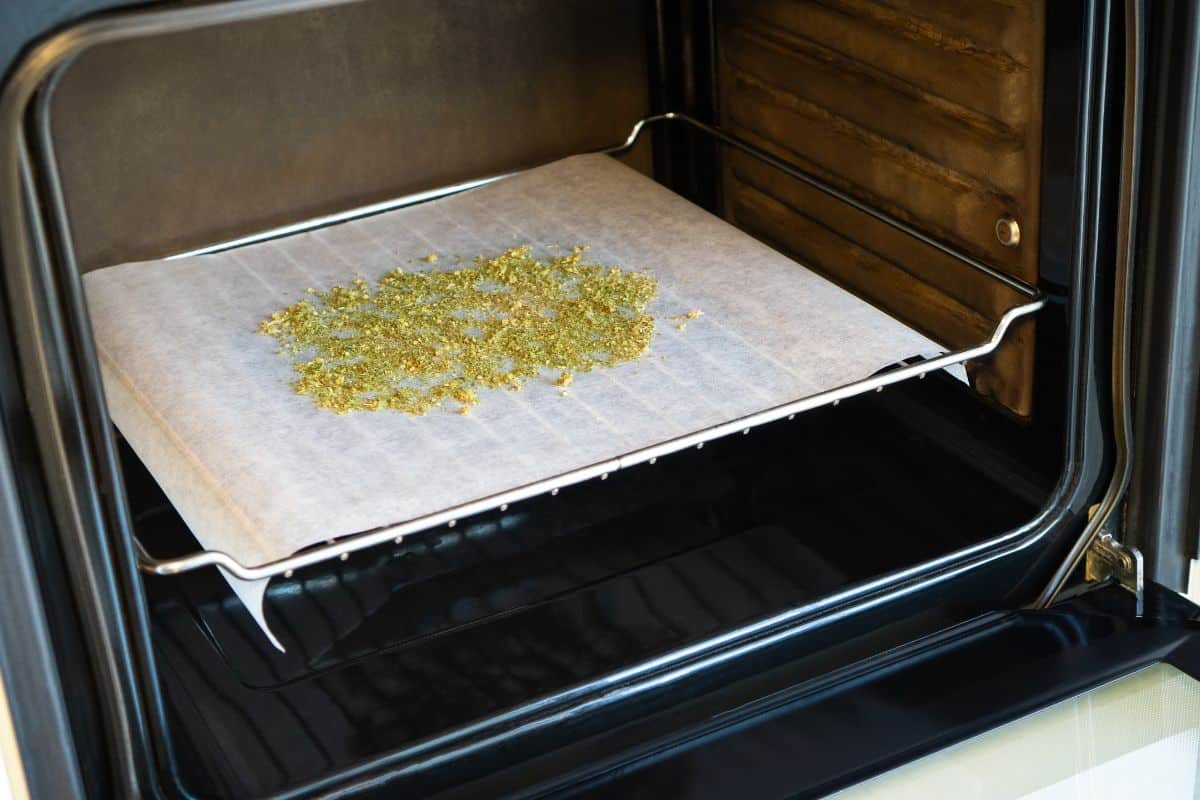
Decarboxylation is a critical chemical process that transforms the non-psychoactive cannabinoid THCa in cannabis into the psychoactive compound THC, unlocking its full potential. This section explores the key components of this process and its relevance to cannabis consumption methods like smoking and vaping.
What Is Decarboxylation?
Decarboxylation is a chemical reaction that removes a carboxyl group from a molecule. In the context of cannabis, it’s the process that converts THCa (tetrahydrocannabinolic acid) into psychoactive THC (tetrahydrocannabinol). THCa on its own does not produce psychoactive effects. This transformation is essential for you to experience the effects commonly associated with THC.
Decarboxylation and Temperature
Temperature plays a vital role in decarboxylation. To decarboxylate cannabis, you must apply heat. The heat causes the carboxyl group (COOH) found in THCa to detach and release carbon dioxide. This process typically occurs when you are cooking, vaping, dabbing, or smoking cannabis. However, it requires a careful balance; too low a temperature won’t fully activate the THC, while too high a temperature can degrade the THC into less desirable compounds.
Activating THCa into THC
When you smoke or vape cannabis, the heat rapidly activates the THCa into THC, making it readily available for your body to absorb. This immediate transformation is what allows you to feel the effects almost as soon as you inhale. In contrast, when cooking with cannabis, the process is slower and must be precisely managed to ensure the THCa is properly converted into THC without degrading the product.
Potential Benefits of THCa
| Potential Benefit | Description |
|---|---|
| Anti-Inflammatory Properties | THCa has been studied for its potential anti-inflammatory effects, which may help in managing inflammatory conditions. |
| Neuroprotective Effects | Some research suggests that THCa may have neuroprotective properties, possibly offering support in conditions affecting the nervous system. |
| Antiemetic (Anti-Nausea) | THCa has been explored for its antiemetic properties, indicating a potential role in reducing nausea and vomiting. |
| Antiproliferative Properties | Studies have shown that THCa may exhibit antiproliferative effects, which could be relevant in cancer research by inhibiting the growth of cancer cells. |
| Appetite Stimulation | There is anecdotal evidence suggesting that THCa may help stimulate appetite, making it potentially useful for individuals experiencing appetite loss. |
| Analgesic (Pain Relief) | Preliminary research has indicated that THCa may have analgesic properties, potentially offering relief from pain. |
| Antioxidant Effects | THCa has been studied for its antioxidant properties, which may help combat oxidative stress and its associated effects on health. |
| Anti-Spasmodic Properties | Some research suggests that THCa may have anti-spasmodic effects, potentially helpful in conditions characterized by muscle spasms. |
THCa, or tetrahydrocannabinolic acid, is the non-psychoactive precursor to THC found in raw cannabis. Its potential therapeutic properties are becoming a subject of interest in medical research.
Medical Implications
Medical research suggests that THCa may offer a variety of health benefits without the psychoactive effects that THC is known for. In the context of medical cannabis use, THCa has been observed to have antiemetic and anti-nausea properties, which could be advantageous for patients undergoing chemotherapy.
THCa vs. THC for Health Benefits
While THC is often associated with pain relief and the high familiar to recreational users, THCa does not induce a high, yet may still provide benefits such as pain relief and reducing inflammation. This distinction may make THCa a preferable option for individuals seeking the therapeutic effects of cannabinoids without the psychoactive experience.
Anti-Inflammatory and Neuroprotective Properties
THCa has demonstrated both anti-inflammatory and neuroprotective properties in preclinical studies. These properties might be beneficial in the management of neurodegenerative diseases, as well as in reducing inflammation related to various health conditions. By potentially modulating the body’s endocannabinoid system, THCa could play a role in a therapeutic regimen aimed at inflammation and neuroprotection.
Effects and Potency of THCa
THCa, or tetrahydrocannabinolic acid, is a non-psychoactive precursor to THC found in raw and unheated cannabis. Understanding the effects and potency of THCA is crucial for both medicinal and recreational users.
Comparing Psychoactive Effects
THCa itself is not intoxicating. It must be exposed to heat in a process called decarboxylation to become THC, the cannabinoid known for its psychoactive effects. When you smoke or vaporize cannabis, the heat converts THCa into THC, resulting in the psychoactive high. However, if you consume raw cannabis, say in a juice or a salad, you will not experience the same psychoactive effects because THCa does not affect your body in the same way that THC does.
Potential Side Effects and Risks
While THCa in its raw form is generally considered non-intoxicating, it’s important to be aware of potential side effects and risks associated with its use, either as THCa or after its conversion to THC. When decarboxylated, the potency of THC can lead to side effects, especially in inexperienced users or when taken in large amounts. Such side effects may include:
- Short-term memory impairment
- Altered time perception
- Anxiety or paranoia
- Increased heart rate
It is critical to understand your own tolerance and the potency of the cannabis product you are using to mitigate these risks.
THCa in Non-Intoxicating Cannabis Products
THCa is present in non-intoxicating cannabis products, often labeled as medicinal or health supplements. Such products may include tinctures, oils, and raw cannabis juices that boast potential therapeutic benefits without the intoxicating high. The efficacy and safety of these products depend on the accurate concentration of THCa and adherence to recommended dosages to ensure non-intoxicating effects remain. These products are valued for their purported benefits, which are under continual research and have established a foothold in both the recreational and medicinal cannabis markets.
Methods of Consuming THCa
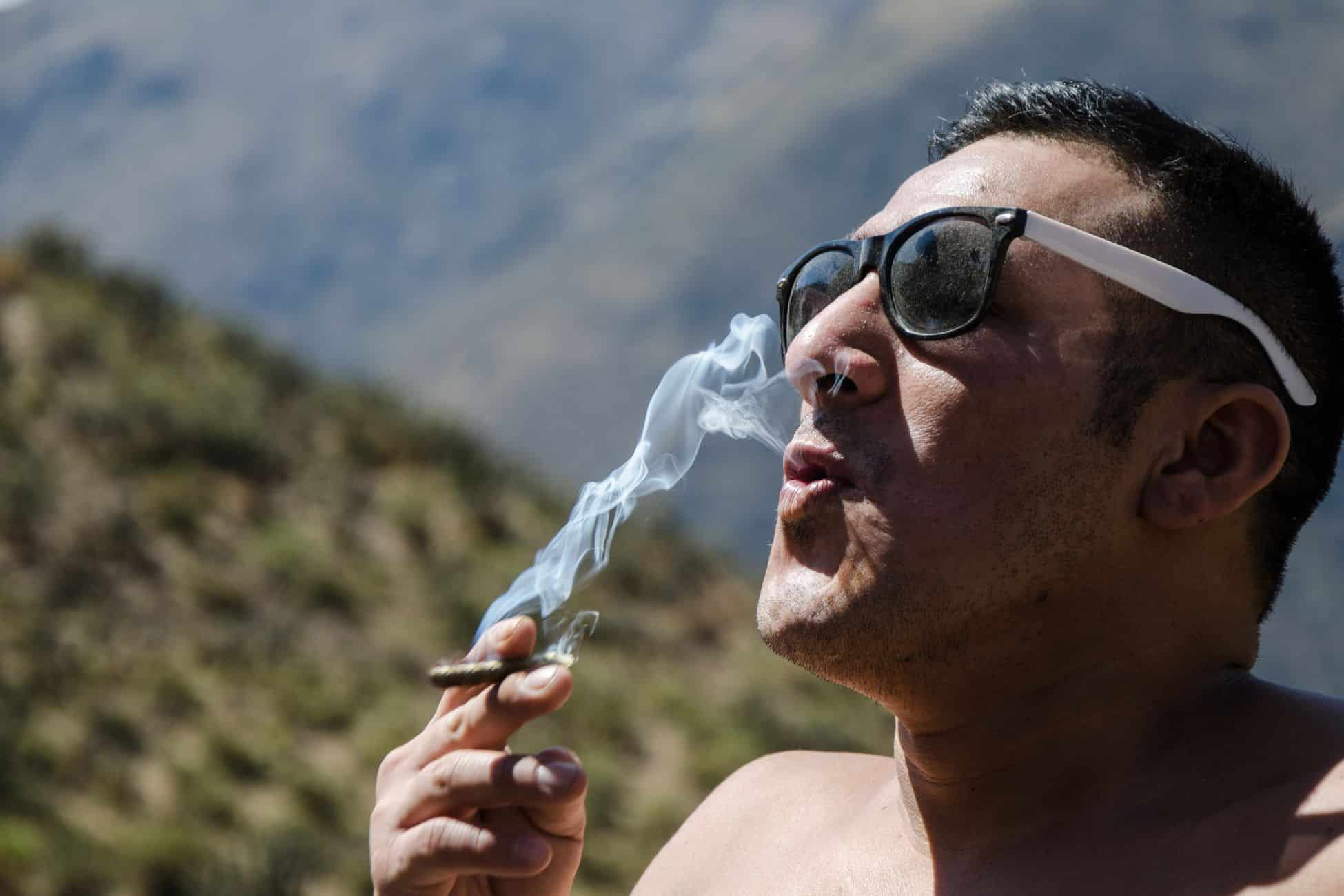
THCa, or tetrahydrocannabinolic acid, is a non-psychoactive compound found in the raw cannabis plant. It offers a variety of consumption methods each with unique characteristics and potential benefits for users such as you who may be exploring alternatives to psychoactive THC.
Smoking and Vaporizing
When you smoke cannabis flower, the heat converts THCa into THC, the compound known for its psychoactive effects. The smoke produced delivers the active compounds quickly into your bloodstream. In contrast, vaporizing heats the flower or concentrates at a lower temperature than smoking, potentially reducing harmful byproducts. A study suggests that using a vaporizer for the pulmonary administration of tetrahydrocannabinol could be effective and safe.
Juicing and Edibles
Juicing raw cannabis can be a method to consume THCa without the psychoactive effects of THC since no heat is involved to cause decarboxylation. This means you get the raw benefits of THCa directly. On the other hand, edibles provide a discreet and effective means of attaining the effects of cannabis when heat is used during the preparation to convert THCa to THC. The cannabis edibles market has seen promises and challenges, with the effect depending upon the concentration of THCa in the plant.
THCa Concentrates and Extracts
Concentrates and extracts such as THCa diamonds or crystals are the purest forms of THCa available. They are typically created through extraction processes that remove most of the plant material, leaving behind potent compounds. When you use these, remember that Tetrahydrocannabinolic Acid remains non-psychoactive until heated. Oils and tinctures can also be infused with THCa, which can be administered sublingually for an easy-to-dose option.
Legal and Safety Considerations
When considering the use of THCa, you need to be aware of its legal status, its availability through medical marijuana programs, and implications for drug testing.
Legality Across Regions
THCa, the non-psychoactive precursor to THC found in raw cannabis plants, falls into a complex legal grey area. While not intoxicating itself, THCa converts to THC when heated, complicating its legal status. In regions where marijuana is legal, such as certain states in the United States and some countries, THCa may be legally consumed. However, in places with strict anti-marijuana laws, possession of THCa could potentially be considered illegal due to its potential to convert into THC. It’s crucial to check your local laws before possessing or using THCa.
Medical Marijuana and Dispensaries
For users with a medical marijuana card, dispensaries may provide products rich in THCa. These are often marketed for their potential therapeutic benefits without the psychoactive effects of THC. You can find a variety of THCa products, including oils, tinctures, and raw cannabis. However, bear in mind that the quality and concentration of THCa can vary, so it’s important to purchase from reputable medical dispensaries that ensure the safety and legality of their products.
Drug Testing and THCa
Regarding drug testing, standard tests typically look for THC, not THCa. However, since THCa can convert into THC upon smoking, there is a chance it could influence drug test results. If you undergo regular drug testing, especially if employed in an industry with zero-tolerance for marijuana use, it’s wise to be cautious with THCa-containing products.
Remember, your safety is paramount, and part of that involves staying informed about the substances you choose to use and understanding how they interact with the law and health policies in your region.
THCa in Agricultural and Industrial Contexts
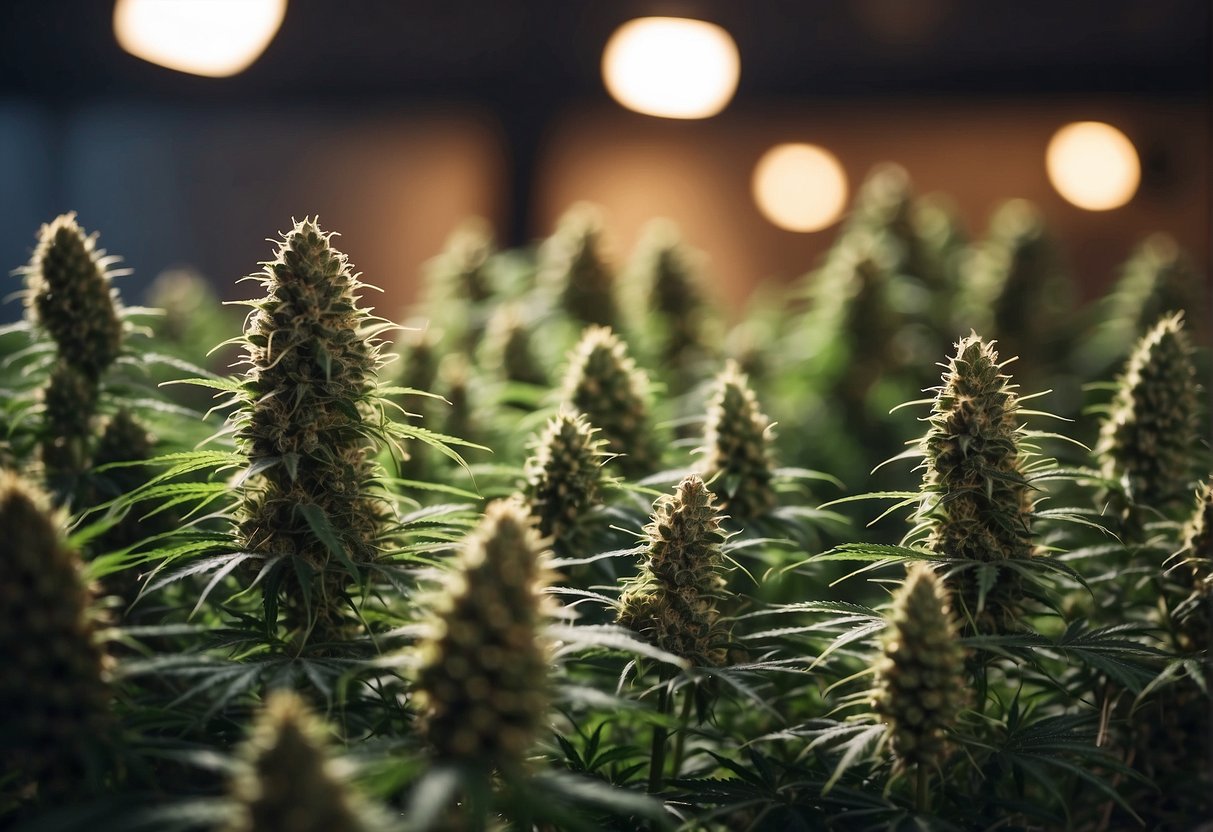
When discussing tetrahydrocannabinolic acid (THCa) within agriculture and industry, it’s vital to recognize its non-psychoactive nature in its raw form. THCa is found in cannabis and, more specifically, in hemp plants. This compound is the acidic precursor to THC and, without heat, does not produce psychoactive effects.
Agriculture: Your understanding of THCa in agriculture involves recognizing its legality under the 2018 Farm Bill. The Bill classifies hemp as an agricultural commodity and differentiates it from marijuana. This means hemp can be grown and harvested for its cannabinoids, including THCa, if the THC content is below 0.3%.
Industry: Industrially, THCa is present in various hemp-based products. Here’s how THCa fits in:
- Raw Materials: Hemp plants rich in THCa are processed to extract the compound.
- Product Development: Companies incorporate THCa into products like oils and edibles.
- Quality Control: Industrial standards ensure product safety, as the transformation from THCa to THC can only occur through decarboxylation—a process requiring heat.
A critical aspect to consider in both contexts is the safety profile of THCa. As opposed to its decarboxylated form, THC, THCa is not known to cause intoxication when consumed.
| Sector | Application of THCa |
| Agriculture | Cultivation of THCa-rich hemp plants |
| Industry | Creation of non-psychoactive products |
Note:
Agricultural Practices: You should be aware that the concentration of THCa in hemp plants is subject to the plant’s growing conditions and genetics.
Industrial Compliance: The industry must adhere to regulatory standards, ensuring that THCa levels in products do not convert to THC above the legal threshold.
The Entourage Effect and Whole-Plant Synergy
| Property | Description |
|---|---|
| Chemical Structure | Tetrahydrocannabinolic acid (THCa) is the precursor to THC (tetrahydrocannabinol) and has a carboxyl group (COOH) attached to its molecular structure. |
| Form | THCa is typically found in the raw, unheated cannabis plant. It crystallizes in the form of trichomes on cannabis flowers. |
| Psychoactivity | THCa itself is non-psychoactive. It only becomes psychoactive when exposed to heat through a process called decarboxylation, converting it to THC. |
| Decarboxylation Temperature | THCa undergoes decarboxylation at temperatures typically above 220°F (105°C). This process removes the carboxyl group, converting THCa to THC. |
| Solubility | THCa is not very soluble in water but is soluble in certain organic solvents. |
| Potential Therapeutic Benefits | Research suggests potential anti-inflammatory, neuroprotective, antiemetic, and antiproliferative properties, among others. |
| Interaction with Endocannabinoid System | THCa interacts with the endocannabinoid system, particularly CB1 receptors, influencing various physiological processes. |
| Degradation over Time | THCa can gradually convert to THC over time, especially with exposure to light, heat, and air. Proper storage is important to minimize this degradation. |
| Legal Status | In many regions, THCa is considered non-psychoactive and may not be subject to the same legal restrictions as THC. However, laws vary, so it’s essential to check local regulations. |
| Availability | THCa-rich products, such as raw cannabis or certain cannabis extracts, may be available in regions where cannabis is legalized for medical or recreational use. |
When you consume cannabis, you’re not just ingesting isolated compounds such as THC; you’re experiencing the combined effects of a wide range of cannabinoids and terpenes. This phenomenon is known as the entourage effect. The entourage effect suggests that cannabinoids like CBD, THCV, CBN, CBG, alongside THC, have greater therapeutic potential when they work together rather than alone.
Here’s a brief breakdown of the concept:
- Cannabinoids: Compounds such as THC and CBD interact with the body’s endocannabinoid system but may have different effects.
- Terpenes: These aromatic compounds, found in the same glands that produce cannabinoids, might modulate the effects of cannabinoids and contribute to the therapeutic profile of cannabis.
In the context of THCa, which is the non-psychoactive acidic precursor to THC, the entourage effect plays a role in how it may act in synergy with other cannabinoids and terpenes found in the cannabis plant.
Research suggests that the full spectrum of compounds in cannabis contributes to the efficacy of medicinal preparations. By using the whole-plant, you’re likely to receive benefits that isolated compounds can’t provide. For example, while CBD is known for its calming effects, combining it with THC and other cannabinoids could enhance its overall impact due to the entourage effect.
However, the evidence for the entourage effect is a mix of both scientific research and anecdotal reports. Some studies, like “Taming THC: potential cannabis synergy and phytocannabinoid‐terpenoid entourage effects,” propose methods for exploring these synergistic relationships further, to better understand the therapeutic possibilities they may offer.
Remember, the interplay between these compounds is complex, and the efficacy of whole-plant synergy can vary from individual to individual. It is always recommended that you consult with a healthcare provider regarding the use of any cannabinoid product.
Future Research and Conclusions
When considering THCa, a non-psychoactive cannabinoid found in raw cannabis, its transformation to THC upon heating and subsequent inhalation necessitates careful examination. Future research should prioritize the safety and long-term effects of inhaling THCa after it converts to THC.
Safety profile: While preliminary studies suggest varying effects, definitive conclusions cannot be drawn without further evidence. You should be aware that the safety profile of inhaling converted THCa is an ongoing topic of study, as noted in cannabis e-cigarettes and dabbing research.
Research scope: The research scope should extend to understand the potential therapeutic benefits and risks. Longitudinal studies may provide insight into any chronic effects related to smoking THCa as it transitions into THC.
- Current assumptions: These should be rigorously tested, and challenged by future research, bearing in mind that assumptions are not certainties.
- Controlled environment: Research under controlled conditions can yield more reliable data about the effects of THCa.
Regulatory standards: Given the evolving legality of cannabis-related products, consistent standards will be essential for future studies and consumer safety.
- Examination of airborne particles: This is especially crucial, as highlighted by NIOSH cannabis-related health hazard evaluations.
- Inhalation vs. oral consumption: The difference in health impact between these absorption methods should be directly compared.
Future studies should continue to explore these matters with impartiality and rigor to establish a well-informed stance on THCa’s safety when smoked. As a consumer or interested party, staying updated with the latest research is vital for informed decisions.
Frequently Asked Questions
Before diving into frequently asked questions about THCa, it’s important to understand that while THCa is a non-psychoactive precursor to THC found in raw cannabis plants, the act of smoking it can have both intended and unintended effects.
What are the potential side effects of smoking THCa?
Smoking THCa may lead to similar side effects as other forms of cannabis use. These can include dizziness, dry mouth, and changes in heart rate.
Can smoking THCa produce psychoactive effects?
When THCa is heated, it converts to THC, the psychoactive compound in cannabis. This means that when you smoke THCa, it’s likely to produce psychoactive effects, just as if you were smoking THC directly.
How does THCa consumption impact the brain?
THCa itself does not bind well to cannabinoid receptors in the brain, so it’s not psychoactive in its raw form. However, through decarboxylation—when THCa is heated—it becomes THC, which can impact brain function, potentially affecting memory, cognition, and perception.
What methods are recommended for consuming THCa flower effectively?
The most effective method for consuming THCa flower to feel its non-psychoactive benefits is through juicing or eating it raw. For those looking to activate THC’s effects, smoking or vaporizing in controlled doses is often preferred.
Is there any link between THCa use and cancer?
Currently, there is no clear evidence that links THCa use to cancer. In fact, cannabinoids have been studied for their potential anti-tumoral properties. However, smoking any substance, including THCa, can produce harmful carcinogens.
What is the potency level of THCa compared to other cannabinoids?
THCa is not potent in its non-decarboxylated form because it does not induce a high. Upon heating, THCa gets converted to THC, which has high potency and is the principal psychoactive component of cannabis.


